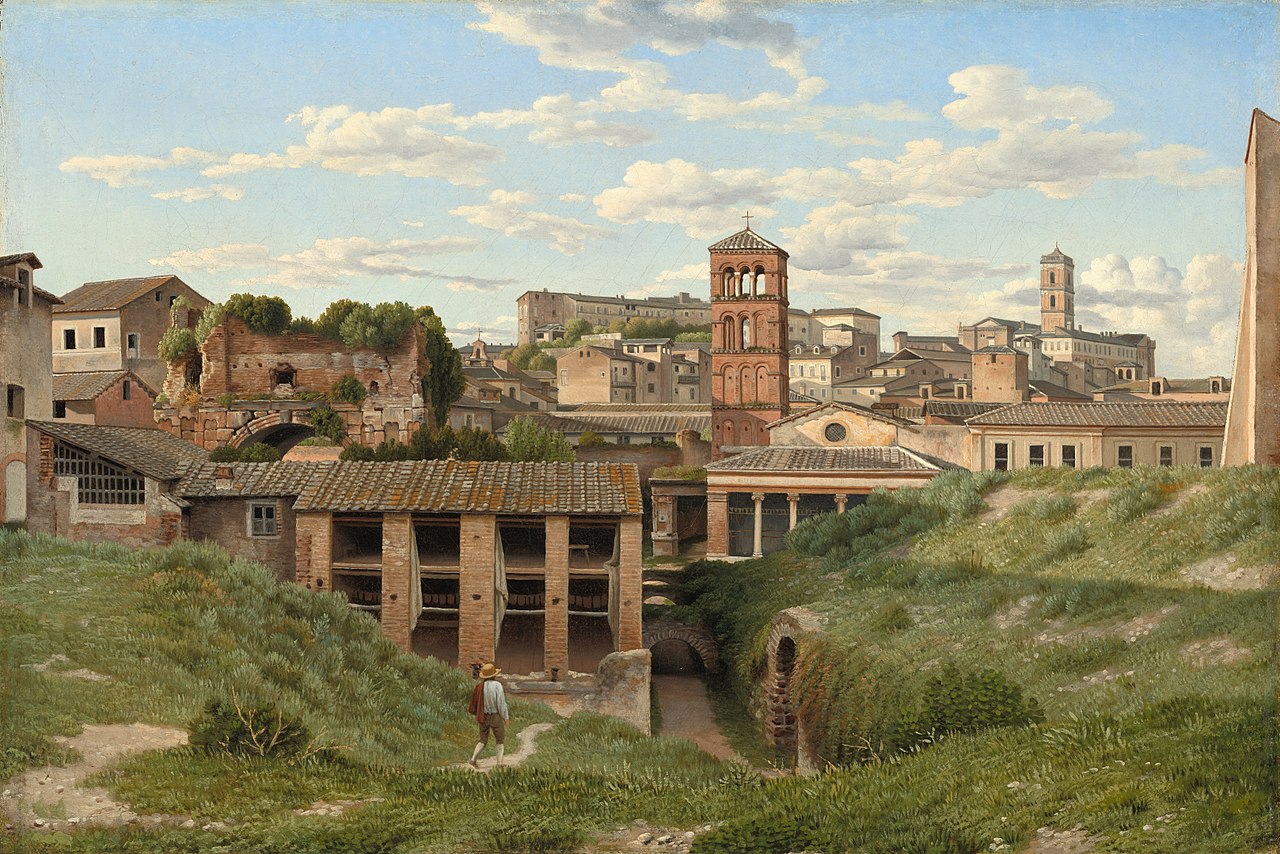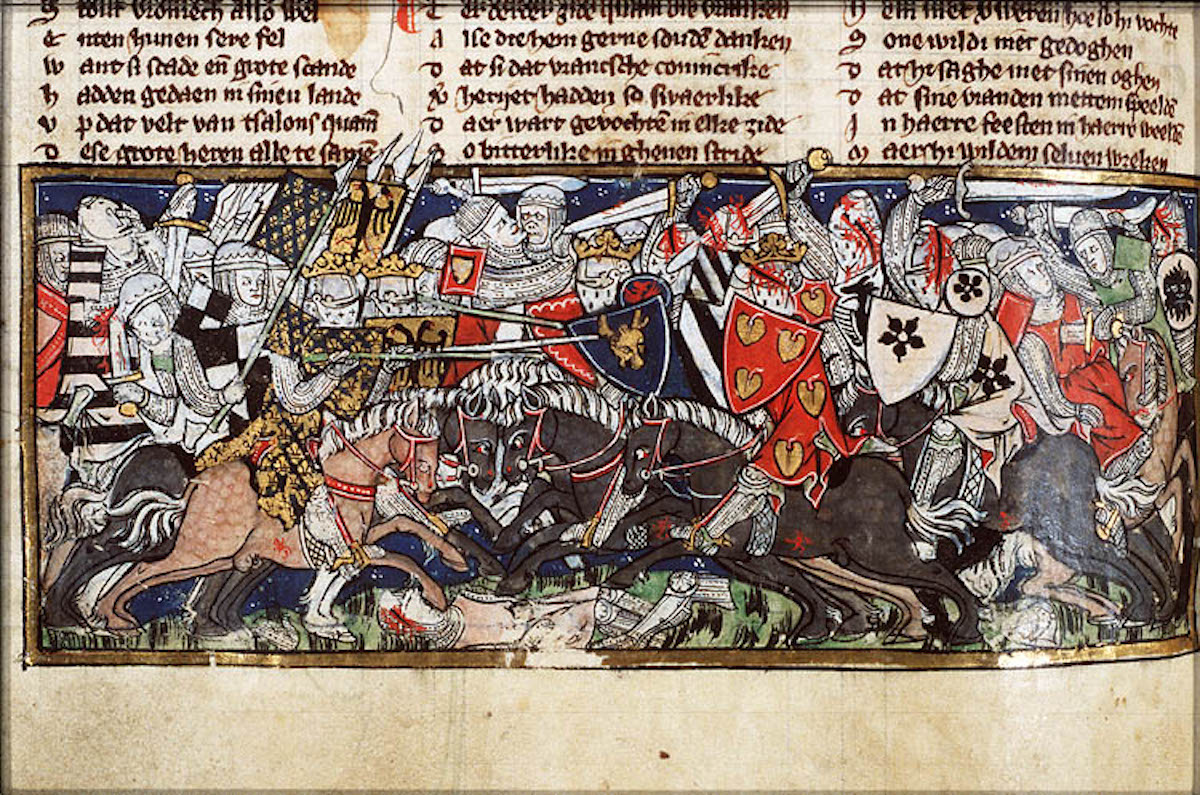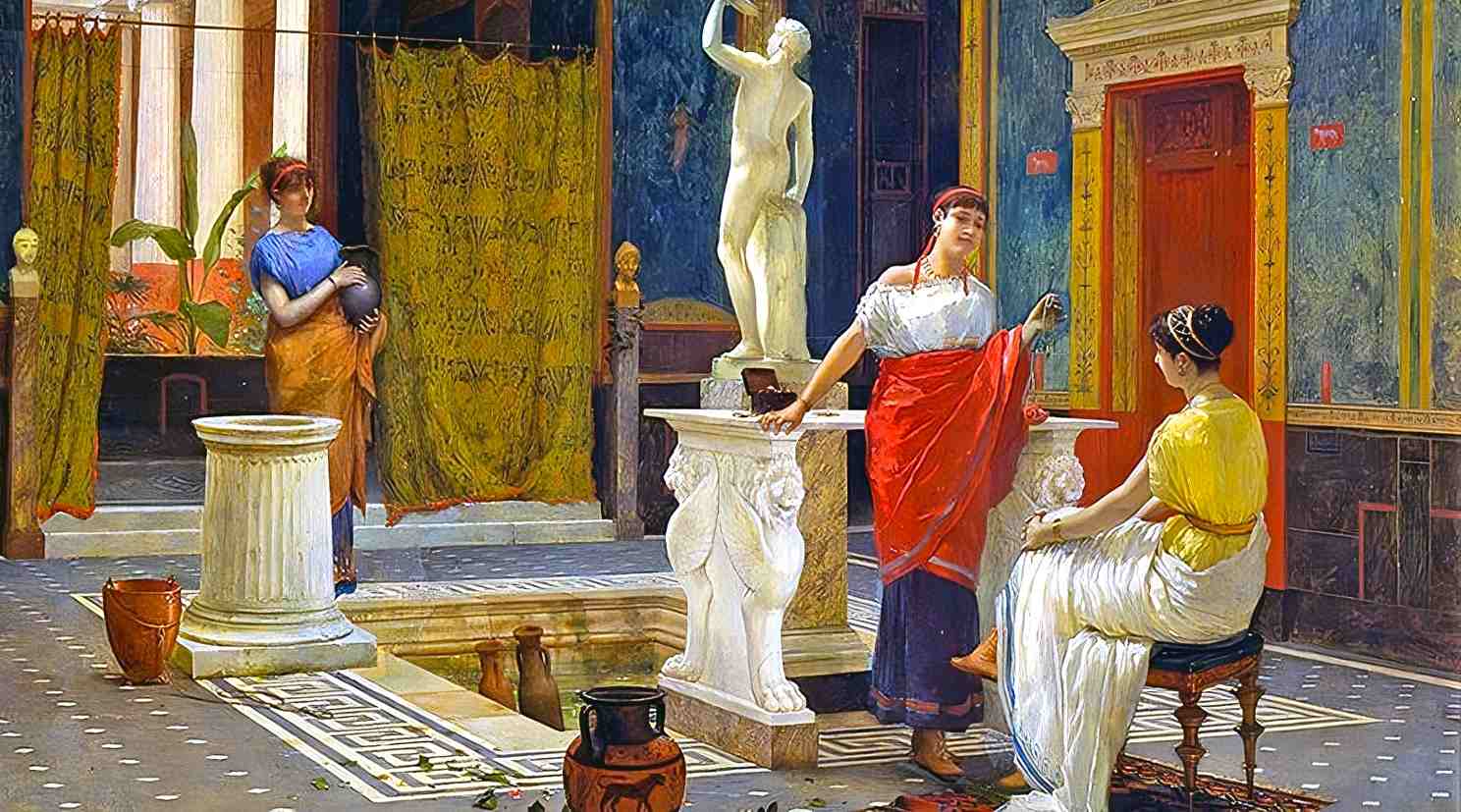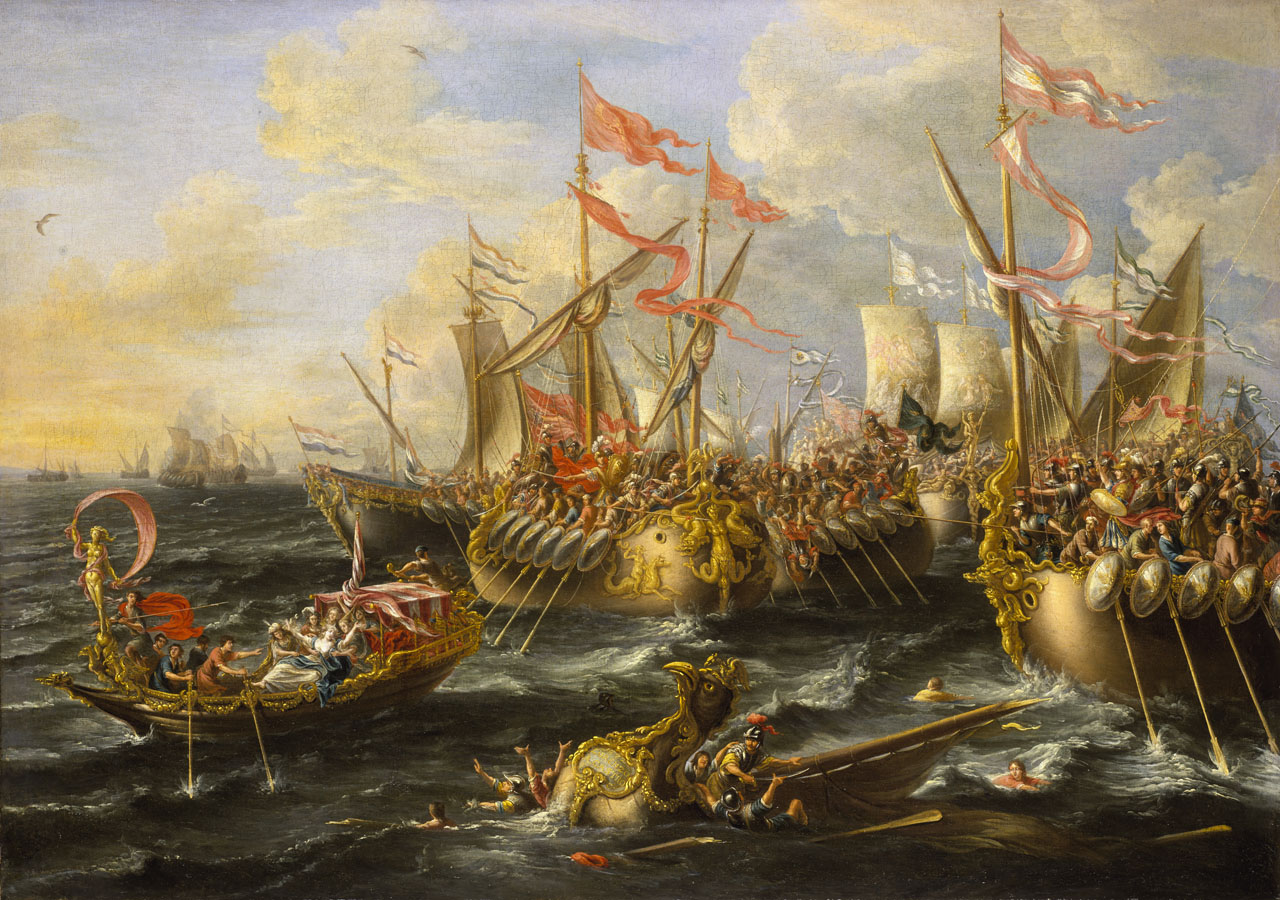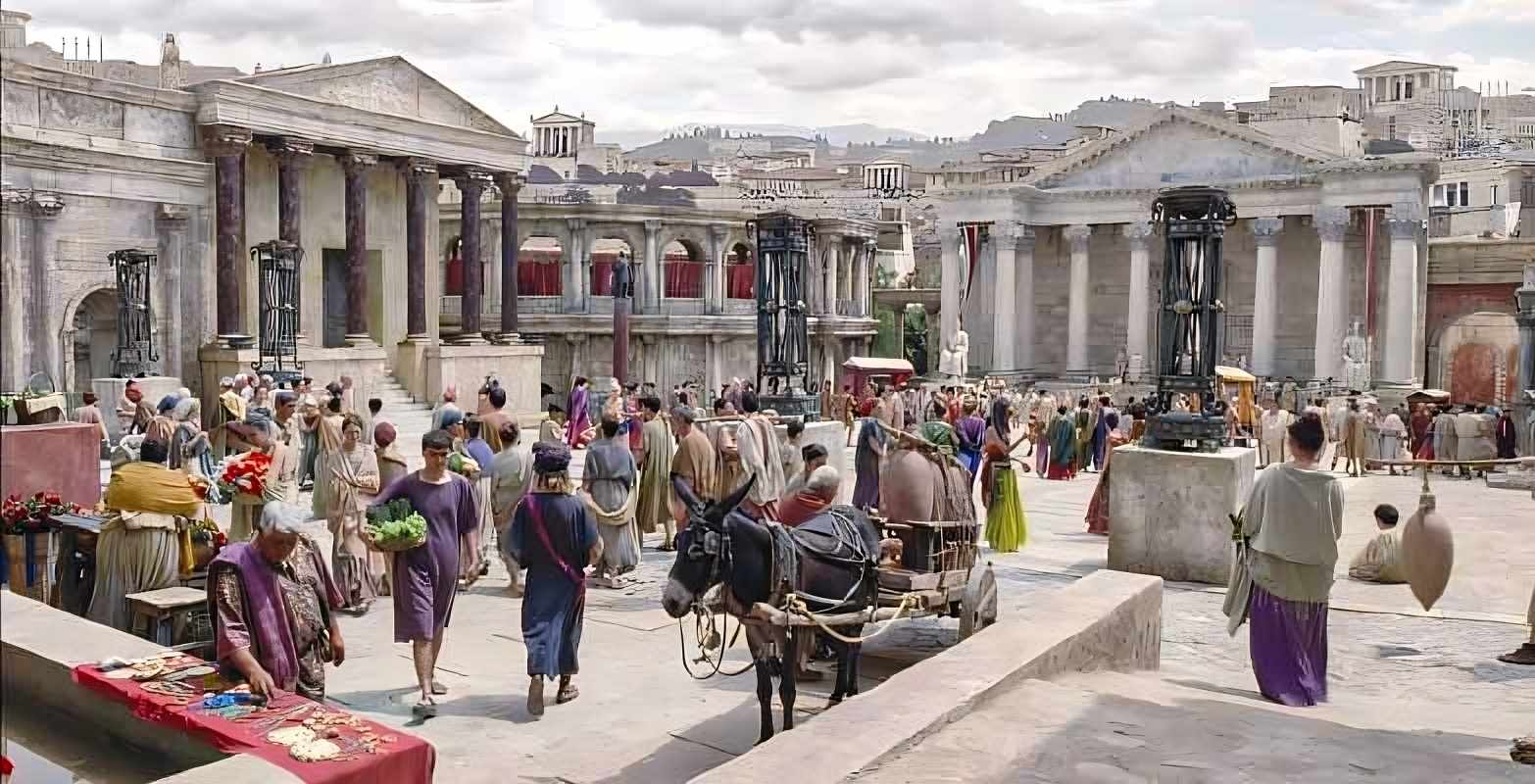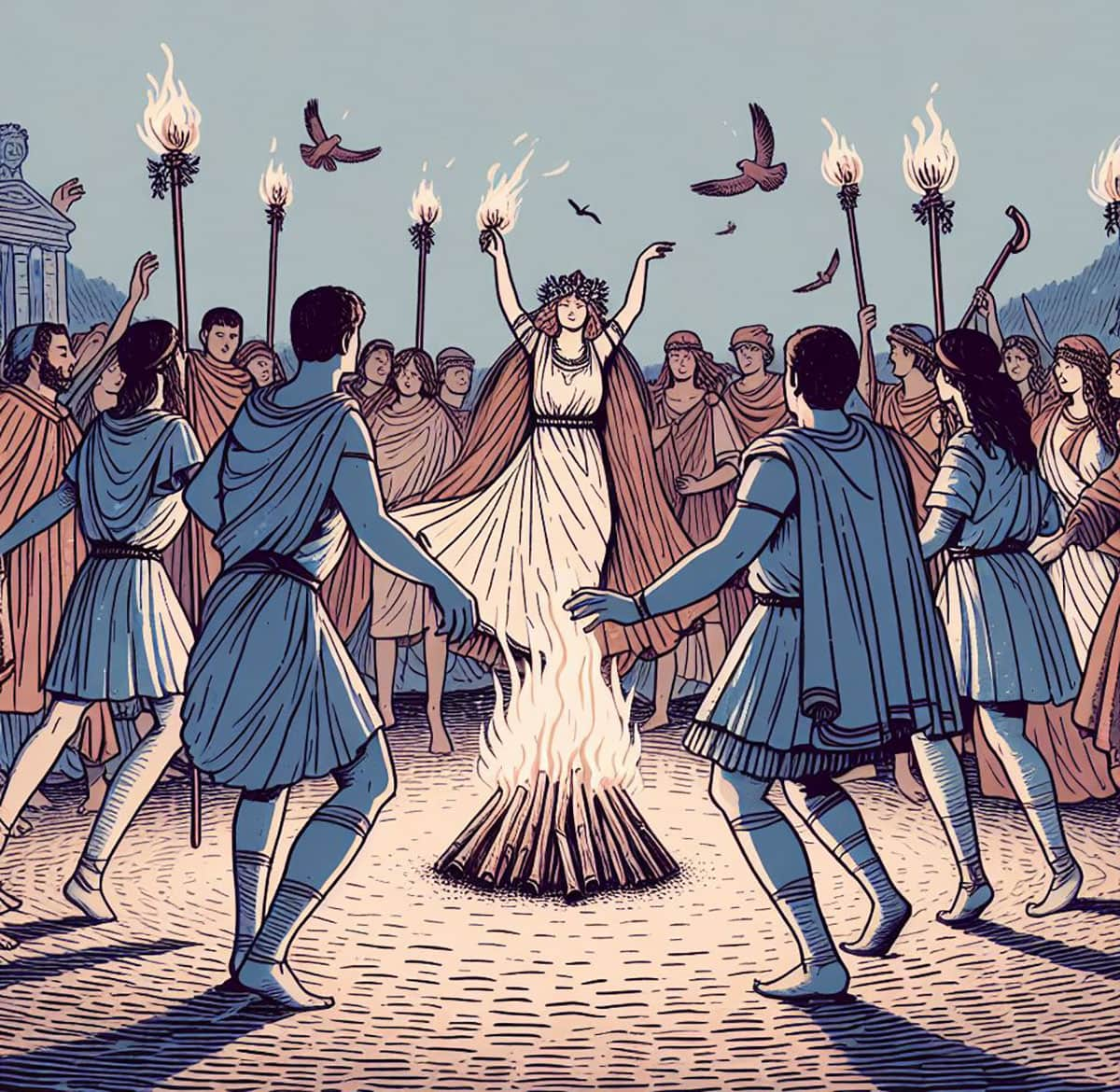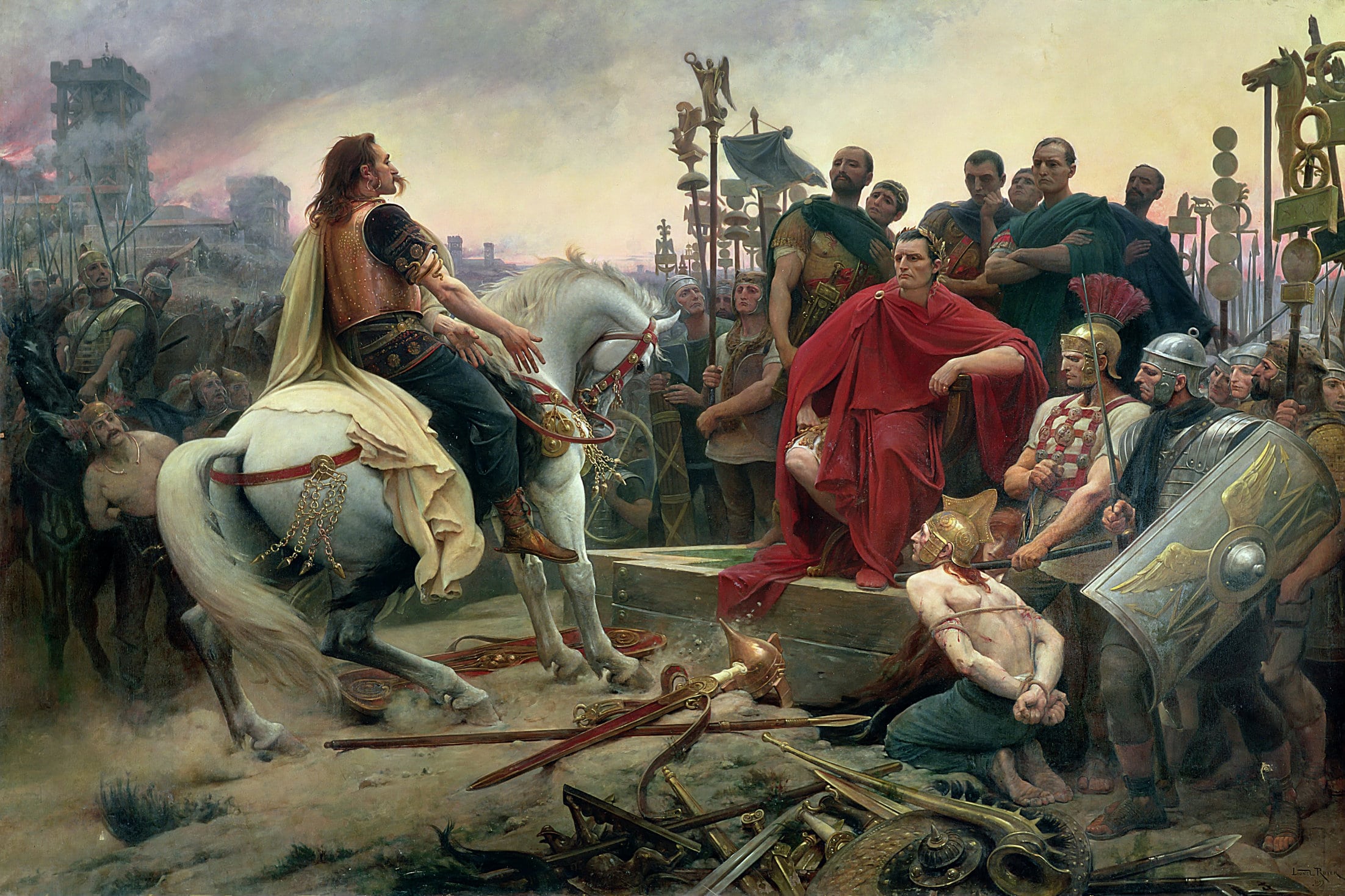Julius Caesar at a Glance
Who was Julius Caesar?
Julius Caesar was a Roman general, statesman, and historian who played a critical role in the events that led to the demise of the Roman Republic and the rise of the Roman Empire. He was born in 100 BC and died in 44 BC.
What were some of Julius Caesar’s important achievements?
Julius Caesar was a successful military leader who conquered Gaul (modern-day France) and expanded the territory of the Roman Empire. He also introduced important reforms in Roman government and society, including the Julian calendar and the establishment of public libraries.
What was Julius Caesar’s relationship with Cleopatra?
Julius Caesar had an affair with Cleopatra, the Egyptian queen. Their partnership was politically crucial since it reinforced a Roman-Egyptian alliance. They have a son called Caesarion together.
What was Julius Caesar’s role in the end of the Roman Republic?
The ascension of Julius Caesar to power marked the end of the Roman Republic and the beginning of the Roman Empire. In 44 BC, he was declared dictator for life, posing a danger to the ancient Roman form of administration. This resulted in his assassination by a gang of senators, including his erstwhile friend Brutus, the following year.
Ancient Roman commander and politician Julius Caesar lived from around 100 to 44 BC. In 59 BC, he was elected consul (the presidents of the Roman Republic), and two years later, in 52 BC, he defeated the Celtic chieftain Vercingetorix in the Siege of Alesia during the Gallic War. A full four years later, Julius Caesar led his army over the Rubicon and on to Rome. He became dictator after defeating his rival, Pompey. When he was finally in charge of Rome on his own, he consolidated most of the civil magistracies and instituted sweeping reforms that ultimately gave him absolute control, heralding the establishment of the Roman Empire (27 BC–476 AD).
- Julius Caesar at a Glance
- Rome and the Roman Legion during the time of Caesar
- Early life of Julius Caesar
- The rise of Julius Caesar
- The First Triumvirate (60–53 BC)
- The Gallic War (58 BC–50 BC)
- Crossing the Rubicon (49 BC)
- Caesar’s Civil War (49 BC–45 BC)
- Julius Caesar, the dictator
- Caesar’s assassination
- His legacy
- Key dates in the history of Julius Caesar
On the fateful Ides of March in 44 BC, a group of senators plotted and carried out Julius Caesar’s murder. His legendary book “Commentarii de Bello Gallico” includes the commentaries he made during the Gallic War, which continue to be invaluable for historians.
Rome and the Roman Legion during the time of Caesar
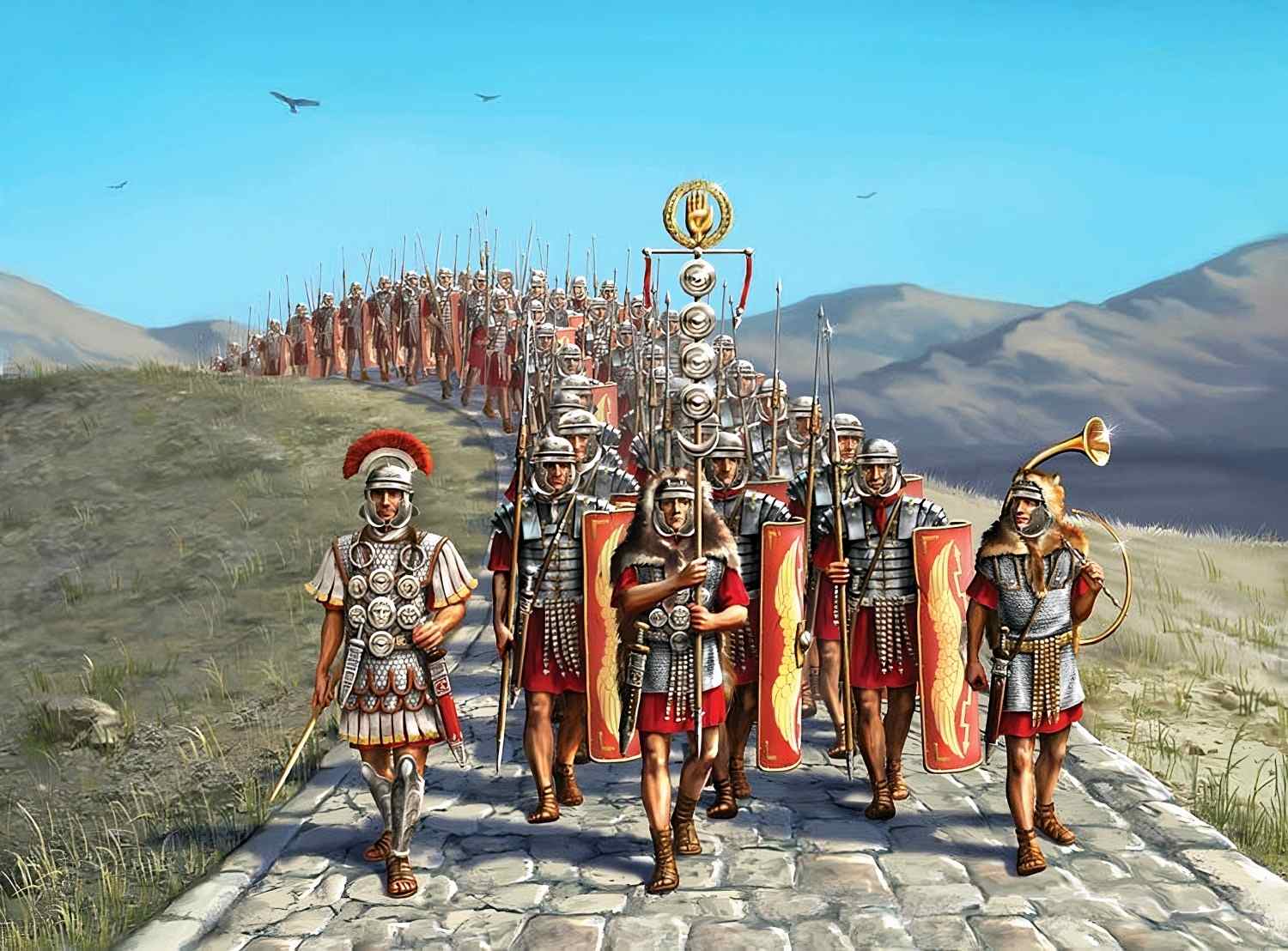
The conquests of Julius Caesar were made possible by an extraordinary military tool: the legion. A Roman legion consisted of 6,000 soldiers in various formations (cohorts, maniples, and centuries). It included infantry and, initially, horsemen.
Disciplinary measures were rigorous and harsh. Citizens of Rome were obligated to serve as legionnaires annually, or more often if the war demanded it. Their careers in service were lengthy, sometimes lasting up to 16 years.
Around 100 BC, Rome’s sphere of influence extended well beyond Italian territory, including the islands of Sicily, Sardinia, and Corsica as well as southern France, southern Spain, and Greece, with a portion of North Africa and Asia Minor.
Provincial governments were established in the conquered lands and administered by the Roman Empire. Soldiers were settled in Roman-founded communities known as colonies.
The principal tax paid by Roman residents was eventually eliminated because of the influx of wealth brought in by the conquests. Slavery, especially that of war captives, increased in number, as did the need for ever-greater displays of wealth and opulence.
The wealthy Romans were captivated by the sophistication of Greek culture. This included the Greek language, philosophy, religion, and art. It was now impossible to overpower Rome.
The Romans had every right to call the Mediterranean “Mare Nostrum” or “Our Sea.” But there were still kingdoms to conquer and areas to subjugate for ambitious generals, like Julius Caesar (100–44 BC).
Early life of Julius Caesar
Gaius Julius Caesar (Latin: Gaivs Ivlivs Caesar) was born into the noble house of the Julii Caesares in Rome. The infant was given a nickname, as was usual in aristocratic families, “Caesar,” which either meant “elephant” in Moorish, in honor of his ancestor who killed one of these monsters, or “thick head of hair” in Latin.
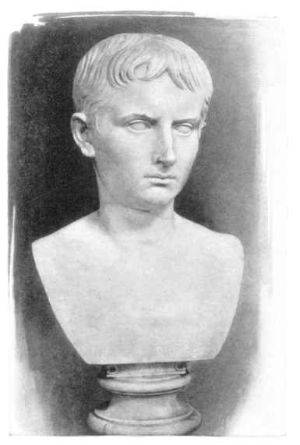
Caesar’s father, from whom Julius inherited his political skills, was a politician. He was an active member of the Republic’s government in his capacity as a senator and magistrate (citizen elected to hold public office). Aurelia, his mother, oversaw Caesar’s schooling up until he was seven years old. Private lectures were held for little Caesar at his home.
He learned the basics of literacy from a “litterator.” At the age of 12, Caesar began studying with a “grammaticus” who instructed him in the literary works of both the Roman language, Latin, and the classical Greek language, which was understood by all educated Romans.
Since he was 16, young Caesar’s education had been geared toward helping him succeed in politics as his father did. Since he had to be able to talk in public, and especially to persuade others on the forum, Caesar carefully studied rhetoric (the art of mastering speech).
In addition to his extensive academic preparation, Caesar was also exposed to military training, where he learned not just how to fight but also how to think strategically and tactically. He turned into an all-around sportsman thanks to his dedication to both swimming and horseback riding.
In the year 86 BC, when Julius Caesar was just 14 years old, his father died. The political unrest that rocked the Republic had an impact on his family. As the newly gained lands outside Italy remained unstable, wealth disparities inside Italy widened.
During this time, two main factions were at odds with one another: the Populares favored giving land to the poor, while the Optimates tried to defend the rights of the wealthy.
After Marius, leader of the people’s Populares faction, died in 86, Sulla, leader of the aristocratic Optimates, ruled Rome with an iron fist from 82 to 79 BC, during which time Julius Caesar and his family were fugitives as they were linked to Marius during the first civil war.
In response to mounting financial difficulties, Julius Caesar eventually left Rome to serve in the military in Asia Minor and the Greek islands. He took the chance to study with world-famous instructors when he was still in his early 20s. When Sulla died in 78, Caesar finally came back to Rome.
The rise of Julius Caesar
After returning to Rome in 73 BC, at age 27, Caesar started his intense cursus honorum, the succession of duties carried out by magistrates (elected for one year) within the Republic’s executive branch, which would qualify him for high-level government positions and ensure his election to the Senate.
The Quaestors were in charge of the Roman government’s finances and treasury, and Caesar held the positions of quaestor in 68 BC, aedile in 65 BC, praetor in 62 BC, and proprietor (governor) of Hispania Ulterior (Spain) in 61 BC.
But this stunning development can’t obscure the reality that following Sulla’s decisive victory against Marius’s supporters, Caesar benefited tremendously from his political orientation, which was in accord with the beliefs of the Populares (“supporters of the people”) as represented by the Great Marius.
Caesar’s wife Cornelia (married in 84 BC) was the daughter of Cinna, one of Marius’ lieutenants, and his uncle-by-marriage, Marius, was the famed general adversary of Sulla.
This relationship occurred at a time when the Optimates (the wealthy, ruling class) ideals were imposing themselves on young Caesar until Sulla died in 78 BC.
Regardless, the young Caesar never forgot the civil massacres caused by the proscriptions of the dictator Sulla (Sulla’s Civil War, 83–81 BC), and this surely shaped at least some of his magnanimous manner throughout his conquests.
The First Triumvirate (60–53 BC)

At the time when Caesar was chosen as quaestor in 68 BC, he got acquainted with Pompey, who had been consul the year before and the political powerhouse in Rome since Sulla’s death. Pompey even married Caesar’s daughter and became his son-in-law.
When Caesar became aedile in the year 65, he staged gladiator battles at his own expense, to soar his popularity, which were much enjoyed by the Romans. A moral leader for the Romans, Julius Caesar was elected Supreme Pontiff (Pontifex Maximus) in 63 and assumed control of the Roman Catholic Church.
Crassus, a wealthy supporter of Sulla who helped put down the Spartacus-led slave insurrection in 72 and 71 BC, paid for Julius Caesar’s costly political campaigns. Crassus, who shared the consulate with Pompey, saw supporting Caesar as a method to counteract Pompey’s influence on him. These three men ended up getting along well and aiding one another.
In 60 BC, Gnaeus Pompeius Magnus (Pompey), Marcus Licinius Crassus, and Julius Caesar, the three leaders of the Roman Republic upon whom the Republic’s future depended, engaged in a secret pact known as the First Triumvirate (“triumvirate” means “three men”).
The goal of the partnership was to bypass the Roman Republic’s constitution, which actively prevented a man from establishing a monarchy.
In this alliance, Caesar provided the Populares‘ support and religious dignity, while Pompey provided military glory, and Crassus the money. Pompey married Julia (76–54 BC), Caesar’s daughter, to strengthen their relationship. Finally, in 59, with the help of this “triumvirate,” Caesar was elected consul; at the age of 41, he ascended to the highest political post in Rome.
After a year at the helm of the Roman Republic, Caesar gave plots of land throughout Italy to the poor and the former soldiers of Pompey. He was not stingy with his money if it meant winning over voters and senators.
Since each character had distinct personal ideals and ambitions, they independently formed a sizable network of clients or “patronage” on their own; in fact, the alliances and gifts for those Triumvirate characters guaranteed personal protection for the client, which formed the basis of Roman politics.
Even though Caesar had to go into severe debt to enlarge his network, Pompey’s influence was significant in the East and Spain, and Crassus was already influential due to his fortune. Owing to his position in the First Triumvirate, this is why Caesar requested and received the rule of Cisalpine Gaul in 59 BC, which then stretched over the whole Mediterranean coast of France to the Balkan foothills.
This happened at the conclusion of his time as Consul, and he hoped to recover his losses and satisfy the expectations of his followers.
The Gallic War (58 BC–50 BC)
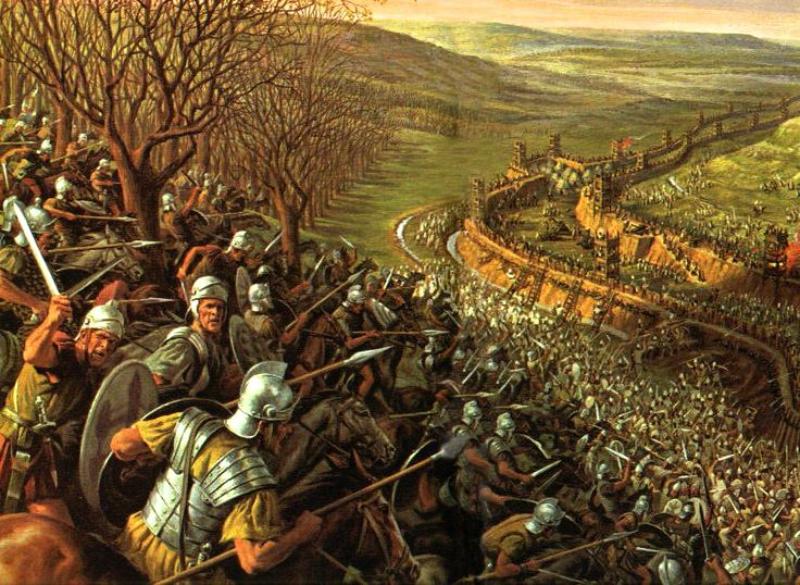
Caesar was now in need of a major military victory and a military command that would provide him not only the wealth to repay his creditors but also the reputation to challenge Pompey in the eyes of the Roman people. The Dacian Kingdom had become a danger in the Balkans, so he thought to focus his war efforts there for booty and prisoners to sell as slaves.
But, to safeguard the Roman world from the Celts and also the Germanic Celts themselves, Caesar intervened in Gaul under the disguise of protecting the Helvetii, a Celtic people, in the north of his province, from the pressure of the Germanic people.
The Gallic Wars continued for a long time, from 58 BC to 50 BC, with many setbacks along the way. Despite repeated attempts for peace, revolts in Gaul inevitably erupted again, the most famous of which was headed by the Gallic chieftain Vercingetorix.
Caesar suffered a defeat at the Battle of Gergovia (52 BC), but he asserted his authority at the Siege of Alesia (52 BC) and eventually forced Vercingetorix to submit. Caesar utilized this war to send expeditions to both Germania and Great Britain, going farther than any commander of the time while infusing his tale with true propaganda via his diary account of the military expedition.
Crossing the Rubicon (49 BC)

Caesar might be seen as a mighty conqueror by the general Roman public, but his rivals saw things differently. During his leadership in Syria in 53 BC, Crassus also set out on a massive military mission.
But after the death of Crassus (53 BC) at the hands of the Parthians at Carrhae, the triumvirate was no longer in place, and Pompey must now face Caesar on his own.
Even though Pompey chose to weakly back his ally Caesar in the Senate, the aristocracy still forced the Senate to declare Caesar an outlaw, move him out of his military command, and send him back to Rome to account for his “illegal” war.
Although the Senate’s abrupt hardening of its stance had no direct effect on Caesar’s ability to lead his loyal and seasoned army, it did have some negative repercussions.
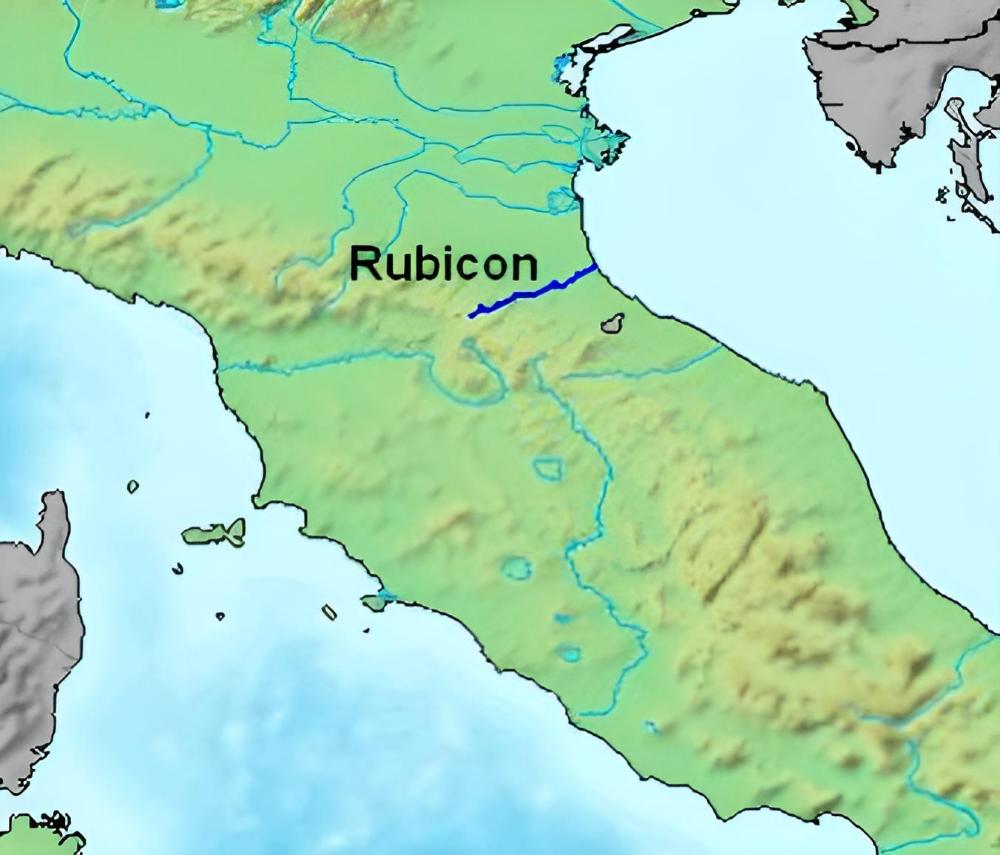
Determined to march on Rome to defend his position, Caesar marched his army over the Rubicon River into Rome on January 10, 49 BC. The Rubicon River marked the geographical boundary between Italy and Cisalpine Gaul.
No Roman commander could cross the river with his army without the approval of the Senate since the Rubicon had an important symbolic function in Roman law. This way, Rome was able to forestall any potential threats originating from the inside.
But Caesar’s famous quote, “Alea iacta est” (“The die is cast”), which he used to defy Roman law, inspired his troops to see their unlawful deed as a coup de force sanctioned by the gods.
Since anybody who crossed the Rubicon was labeled a public enemy, thus, Rome was thrown into civil war. Today, “crossing the Rubicon,” means passing a point of no return.
Caesar’s Civil War (49 BC–45 BC)
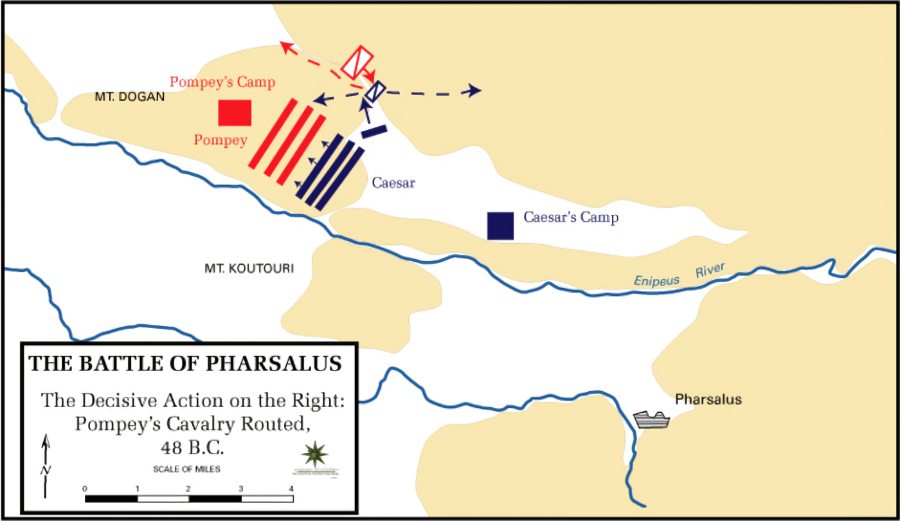
Caesar crossing the Rubicon was enough for Pompey to give up his efforts for an alliance with the Senate. Pompey quickly fled Italy and took refuge in Greece, where Pompey was certain he could assemble an army to rival Caesar’s in the East.
Meanwhile, Caesar installed a Senate under his control in Rome and used that to assume the consulate and then the dictatorship or “extraordinary magistrate,” usually elected only for a short time when the state is in an emergency.
Caesar first landed in Spain, where he easily shattered Pompey’s support, before moving on to Illyria (in the Balkans) and going on the attack directly against the republicans there. Finally, after much struggle, Caesar was able to meet his adversary and former ally, Pompey, in this death match between the two finest generals of the day.
With 22,000 legionaries, 1,000 cavalries, and a few light infantry, Caesar seemed to be outnumbered and outgunned in this plain of Pharsalus in Macedonia against Pompey, who had an army of 36,000–45,000 legionaries, 5,000–7,000 cavalries, and thousands of light infantry.
However, Caesar was able to rely on forces composed of the Gallic Wars veterans, unlike Pompey, who could primarily align young recruits. But Caesar’s cavalry was far weaker than Pompey’s, therefore he opted to put them in support of his eight cohorts (detachments of a legion, usually composed of 480 soldiers), who surprisingly smashed the Pompeian cavalry charge.
They continued their endeavor by encircling the left flank of Pompey’s army and ultimately determining the outcome of the Battle of Pharsalus (48 BC). This was the sign of an approaching slaughter.
Pompey fled the battlefield in defeat and sought refuge in Egypt, where Ptolemy XIII had him killed. One of Caesar’s most ferocious opponents, Cato of Utica (Cato the Younger), retreated to Africa to continue the war there.
In order to settle the dispute between Pharaoh Ptolemy XIII and his sister-wife Cleopatra, Julius Caesar went after Pompey in Egypt and eventually found him dead.
Awed by Cleopatra’s beauty, Caesar crushed the Pharaoh’s forces, and the Roman General presented the Egyptian throne to Cleopatra. While there, Caesar subsequently had his legendary affair with Cleopatra, who even gave him a son, Caesarion. Julius Caesar was now ruling the whole Mediterranean.
Nonetheless, Caesar encountered significant hurdles at Alexandria, where his progression was halted by a rebellion barricading the city.
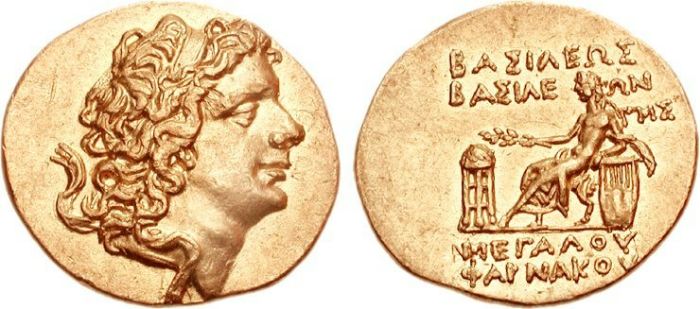
His victory allowed him to go north into Asia Minor, where Pharnaces II of Pontus, son of the infamous Roman foe Mithridate VI, had just defeated the Roman governor of the territory with a rapid onslaught.
There, Caesar made his maxim dictum, “Veni, Vidi, Vici,” (“I came, I saw, I conquered”), when he swiftly defeated the enemy in his first encounter during the Battle of Zela (47 BC), in modern-day northern Turkey. Caesar went back to Rome to land in Africa as soon as possible to face Cato and the other Pompeians getting ready to fight Caesar.
Near Thapsus (in modern Tunisia), despite being outnumbered, Caesar once again came out on top in the Battle of Thapsus in 46 BC with his 12 legions against the forces of the Optimates led by Metellus Scipio, which were also composed of 12 legions but 14,500 cavalries instead of 5,000 and also around 60 elephants.
Shortly after, Scipio and his ally Cato the Younger, as well as Numidian King Juba (who provided the war elephants), committed suicide, while Cicero and others surrendered to Caesar.
After the Battle of Thapsus, Caesar went on to end the last strongholds of resistance in Spain, consolidating the gains he had made in the African region since his victory in the Battle of Munda (45 BC) against the son of Pompey, Gnaeus Pompeius Magnus, and high-ranking officer Titus Labienus, who both were killed.
It was the final battle of Caesar’s Civil War against the leaders of the Optimates, where Caesar managed to beat the Optimates despite being outnumbered, once again, by 50,000 to 70,000. When Caesar returned to Rome, he triumphed over his Pompeian adversaries, just as he had done in 46 BC at the cost of Gaul, Pontus, Egypt, and Numidia, for which he earned himself a deadly hatred.
Julius Caesar, the dictator
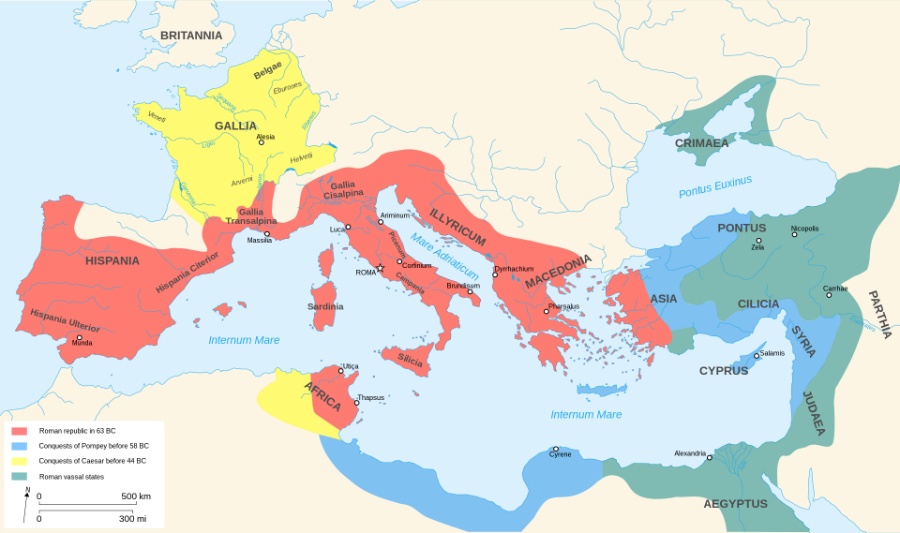
When Caesar finally made it back to Rome at the end of August 45, he was greeted with widespread joy and promptly celebrated his return with no less than five formal triumphs. Caesar led the Gauls to victory, and so he marched along with Vercingetorix in chains. He was proclaimed the victor of Pontus, Africa, and Spain.
Compared to the original ten provinces from Sulla’s reign, eight more provinces were added to Rome by Caesar’s war efforts. Caesar gradually became a godlike figure in the minds of the Roman people, held in high esteem even by the gods themselves.
For propaganda, Caesar invited Cleopatra and little Caesarion to Rome, which was cheered with great enthusiasm by the public. It was politically useful, and he left Egypt with four legions and a knight in command, apparently to keep order, but in reality, to control this “autonomous” country that was progressively becoming a Roman colony.
From then on, Julius Caesar ruled over an empire backed by a massive army. 39 legions, or around 200,000 soldiers (not including the auxiliary forces) in the hands of their commander, Caesar, who understood how to award services, was intimidating in size, quality, record, and even by a look.
Julius Caesar also returned with a hoard of extraordinary treasures from various locations in Asia and Europe. Nothing impressed the Roman people more than the presentation of these wonders during triumphal parades.
Caesar’s authority increased exponentially with each subsequent election. In 46 BC, Caesar had initially received dictatorship for 10 years but in 44 BC, he declared himself the eternal dictator.
These consecutive votes provided Caesar with the certainty of legitimacy, in addition to military might and money. Indeed, in the lack of any other premise than popular consent in the Roman “constitution,” Caesar’s eternal dictatorship could not be declared illegal.
Finally, to add a religious meaning to the mix, Julius Caesar had been made Supreme Pontiff in 63 BC; thus, he was made augur, or the official Roman priest. And on a more personal level, Caesar openly claimed to be descended from the goddess Venus through the alleged founder of his family.
Thus, a stunning cult of personality topped up an already unique image. Next, the laurel wreath meant for religious victories was permanently affixed to his bald head, which he had the privilege to wear every day. And he was crowned “imperator” three times for his conquests.
There was a monument to Caesar in the Capitol, and effigies of him sprang up in every public plaza. The most momentous occasions in his life were celebrated with solemnities, and the month of his birth had been renamed Julius, the origin of “July.”
Caesar, the man in charge of Rome’s fate, restructured the Empire from top to bottom. His efforts to improve long-neglected areas included granting land to veterans so they might establish new colonies there. When he saw the vastness of the land under Rome’s control, he made the executive decision to encourage local self-government.
He increased the number of counselors and praetors, as well as the size of the senatorial assembly, which went from 600 to 900 senators, enabling him to drown the opposition, which had already been severely weakened, with people selected from among the provincials, soldiers, and even freedmen. To combat the abuses, he also granted Transalpine Gaul residents citizenship and attempted to standardize tax collection.
Caesar’s assassination
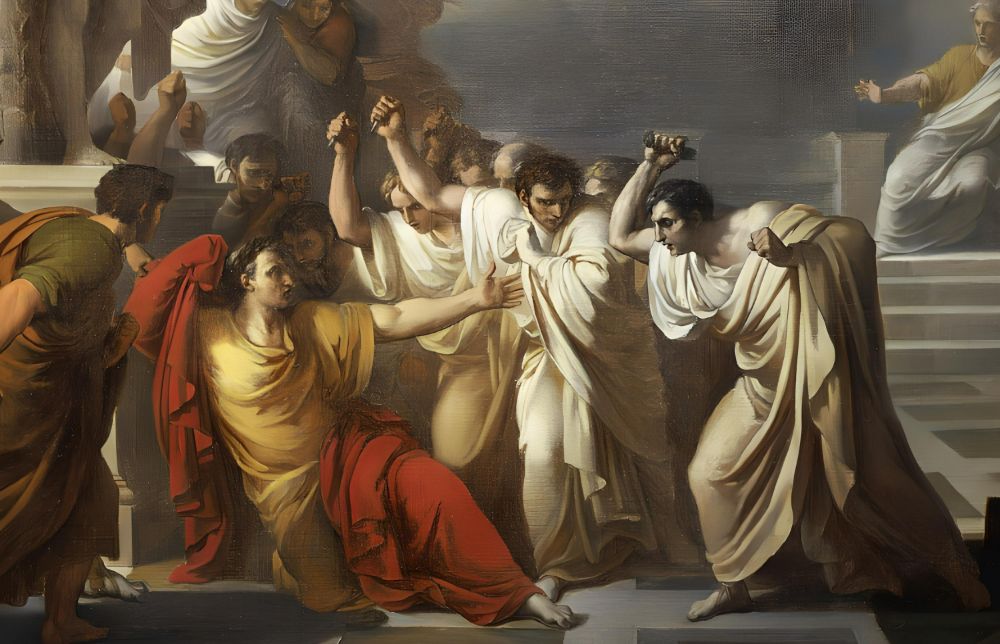
A gang of senators, led by Cassius and Brutus, planned the overthrow of the tyrant Julius Caesar. They stabbed Caesar in the midst of a Senate meeting on March 15, 44 BC.
In his last moments, Caesar was horrified to see Brutus, whom he had treated like a son, among his killers. In his last words, Caesar said Kai su teknon in Greek, which translates to Latin as Tu quoque, mi fili, meaning “You too, my son.”
The more well-known “Et thou, Brute?” (You too, Brutus?) was first used by Richard Edes in his play Caesar Interfectus, which in turn inspired William Shakespeare to write his own play Caesar.
Tradition called for Caesar’s corpse to be taken to the Roman Forum Mars by enslaved people, where it was burned. Caesar had named his adopted son Octavian, the future Emperor Augustus, as his successor in his testament. In honor of his renowned adoptive father, Octavian took the name “Caesar” as his title.
Julius Caesar adorned himself with honorifics by claiming the positions of Supreme pontiff, annual Consul, Dictator, and Emperor. A genuine religious icon, he eventually appeared on Roman coins. Amnestying his old opponents, inviting Gauls and Spaniards to the Roman Senate, and distributing land to veterans and the destitute are examples of the pro-weak state policies Caesar enacted.
Julius Caesar’s Roman Empire, which he established with unrestrained ambition, ruled the whole Mediterranean for 500 years. His leadership skills and ability to inspire his followers are universally admired, and his administrative and literary accomplishments are also worthy of praise. As a tribute to him, the month of his birth (quintilius) was changed to julius, which we now know as July.
His legacy
Caesar was on the point of accomplishing his life’s dream to integrate and pacify the Roman world until he was assassinated on the Ides of March in 44 BC, cutting short his chance to execute a package of reforms.
Despite his attempt to be a merciful conqueror, the dictator for life had crystallized many hatreds, most noticeably his obscurity about monarchy, a rule that the Romans greatly detested. The conspirators believed they had eradicated all the challenges to the republican system by assassinating Julius Caesar.
Julius Caesar left an indelible mark on the Roman world, and his nephew and adoptive son, Octavian, and his master of the cavalry, Mark Antony, carried on his accomplishments before turning on one another.
What the Sullan Restoration had achieved in a perilous way was broken by the ambition and skill of Julius Caesar, and Rome would never be the same again. The Roman Republic was in its latter days, and a new Roman Empire was beginning to take shape.
It is again Caesar who spoke for himself as he was also talented in writing: his Gallic War and the Civil War books went down in Latin literary as landmark works. Julius Caesar wrote an account of his own military exploits in the third person.
After his death, the name “Caesar” became the first of the formal titles of Roman emperors, which was a testament to the significance of his achievements and legend in Rome’s history. His name also gave birth to the titles “tsar” and “kaiser,” which were derived by the Russian and German emperors in their respect for Julius Caesar.
Key dates in the history of Julius Caesar
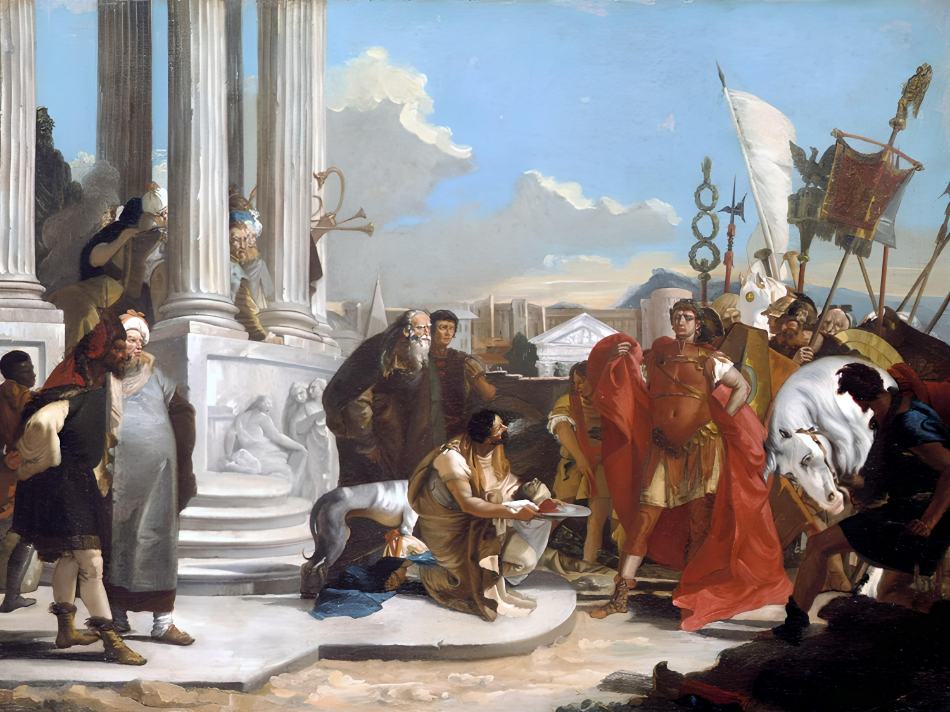
July 12, 100 BC: Birth of Julius Caesar
Gaius Julius Caesar was born in Rome. His family claimed direct descent from Aeneas, the son of Venus and the de facto founder of Rome. At the beginning of his political career, Caesar sided with his uncle Marius, the popular party leader, against Sulla, the senatorial party leader in Rome.
After Sulla’s death in 78 BC, Julius Caesar rose to prominence and eventually marched on Rome in 49 BC to install himself as dictator.
70 BC: The beginnings of Caesar’s political career
Slowly but surely, Julius Caesar rose through the ranks of Roman politics, beginning as a tribune and progressing through the ranks of a soldier, quaestor, aedile, and praetor. Following his time as propraetor in Spain, he became governor of Cisalpine and Transalpine Gaul.
60 BC: The First Triumvirate
In order to become Consul of Rome, Julius Caesar created a secret alliance with Pompey and Crassus, which they called the First Triumvirate.
59 BC: Caesar, Consul of Rome
Due to the Triumvirate founded by Pompey and Crassus, Julius Caesar was made Consul in 59 BC.
58 BC: The Gallic Wars
The “Gallic Wars” was declared by Caesar. From 58 to 52 BC, Caesar conquered and enslaved the people of the North.
51 BC: Julius Caesar defeats Vercingetorix
Vercingetorix surrendered to Julius Caesar after a protracted siege in and around Alesia (Burgundy). Caesar had achieved victory by subduing Gaul.
49 BC: Julius Caesar crosses the Rubicon
In order to unite Cisalpine Gaul and Italy, Julius Caesar led the 13th Legion over the Rubicon River. However, without permission from the Roman Senate, no military commander could cross this frontier. Thus, Julius Caesar had broken Roman law and declared war on the Senate by disregarding this edict.
His words, “Alea iacta est,” upon crossing the Rubicon are interpreted as “The die is cast,” in common Latin. Nothing was able to stop Julius Caesar from entering Rome, removing Pompey, and eventually becoming dictator for life over the whole Roman Empire.
August 9, 48 BC: Pompey defeated by Caesar
At Pharsalia in Thessaly, Caesar pursued and decimated Pompey’s forces. Following Caesar’s crossing of the Rubicon (the river dividing Gaul from Italy), Pompey and the Senators fled Rome and headed for Greece a year earlier. If Pompey lost to Caesar, he could always take asylum in Egypt under Ptolemy XIII. However, Ptolemy XIII later had him killed out of fear of Caesar’s retribution.
47 BC: Julius Caesar meets Cleopatra
As Caesar tracked down Pompey in Egypt, he found out that Pompey had been murdered. Caesar became resentful of Ptolemy XIII, the pharaoh, who was recently at odds with his sister-wife Cleopatra. The Egyptian Queen had an instant and profound effect on the Roman General. Following his successful military campaign against the Egyptian King, Caesar handed over Egypt’s throne to Cleopatra. The couple was now expecting a son.
45 BC: Caesar is at the height of his glory
The Mediterranean was now under the Roman Emperor Julius Caesar’s rule. He had complete control over Rome. He still, however, did implement policies that were mostly in the interests of the poor.
March 15, 44 BC: Assassination of Julius Caesar
Despite being named dictator for life, Julius Caesar was killed. 50 Senators, all of whom were in favor of restoring the oligarchic republic, flung themselves on Caesar during a full Senate session and struck him 23 times with their swords. Caesar died next to a monument honoring his opponent, Pompey. Caesar had a lot of respect for Brutus, the son of his mistress, and he had a lot of respect for Cassius, a Roman commander, who were both involved in his assassination.
It was reported that when Julius Caesar saw Brutus among his killers, he yelled in Greek, “Kai su teknon,” which in common Latin would be translated as “Tu quoque, mi fili” (“You too, my son”). In accordance with custom, slaves carried the tyrant’s body and cremated it on the Roman Forum. Augustus Caesar, Caesar’s adoptive son, was named as his successor in the testament.
References
- “A Companion to Julius Caesar,” by Miriam T. Griffin.
- “The Twelve Caesars,” book by Suetonius.
- “The Life of Julius Caesar,” by the University of Chicago.
- “The Civil War,” book by Julius Caesar.
- “Commentarii de Bello Gallico,” book by Julius Caesar.









